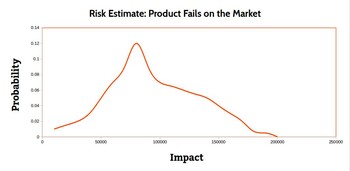
Pure Risk
When most people say risk -- they are talking about pure risk. Pure risk is a potential for something bad to happen with no possibility of a gain. For example, if you drive a bicycle there is a chance you will get into an accident and be injured. People tend to think of risk as a completely bad thing and equate risk with pure risk.Speculative Risk
Speculative risk is a chance that you take that may result in gains or losses. For example, investing in stocks. Unlike pure risk, this can't traditionally be insured.Upside Risk
Upside risk is a term for uncertain positive results. This is mostly applied to investments where this represents any uncertain but possible investment gains. For example, if you purchase a home you have the upside risk that the home will increase in value and the downside risk that it will go down in value.Positive Risk
Positive risk is the potential for positive results beyond your plans or expectations. A common example of positive risk is the chance that a project will be delivered ahead of schedule and/or underbudget. This is a positive thing that shouldn't be avoided. However, in many cases it is essentially a planning failure such that it may be viewed negatively. If your project is six months early, you probably inflated your estimates.Opportunity
The same actions that create risk also may create opportunity and vice versa. This is the reason that in professions such as finance, risk management and project management risk is viewed as having a negative and positive side. In other words, opportunity can be viewed as a risk.Inaction
People strongly associate risk with taking action. However, risk results from inaction too. For example, if you don't maintain the roof on an old home, the risk of a leak will increase due to your inaction.Uncertainty
It is common to present risk taking as inherently bad. This is essentially a myth. Risk is the result of uncertainty and is built into every action and inaction that you take. As such, the notion that risk taking is bad is absurd as risk taking is completely unavoidable. If you avoid the risk of commuting to work you must face the risk that your house will burn down while you're home. There is simply is no such thing as not taking risks.Calculated Risk
A calculated risk is an action or inaction that has been well considered. For example, a homeowner who takes a look at their roof and decides that maintenance isn't yet required is taking a calculated risk that some issue will occur with the roof.Uncalculated Risk
An uncalculated risk is a risk that isn't well considered. Individuals who claim to avoid risk may really be taking uncalculated risks. For example, if you "avoid" investment risk by putting your savings in a low interest bank account you may face the risk that inflation will reduce the value of those savings towards zero in the long run.| Overview: Risk Meaning | ||
Type | ||
Definition | The potential for loss or gain due to action or inaction. | |
Related Concepts | ||



































